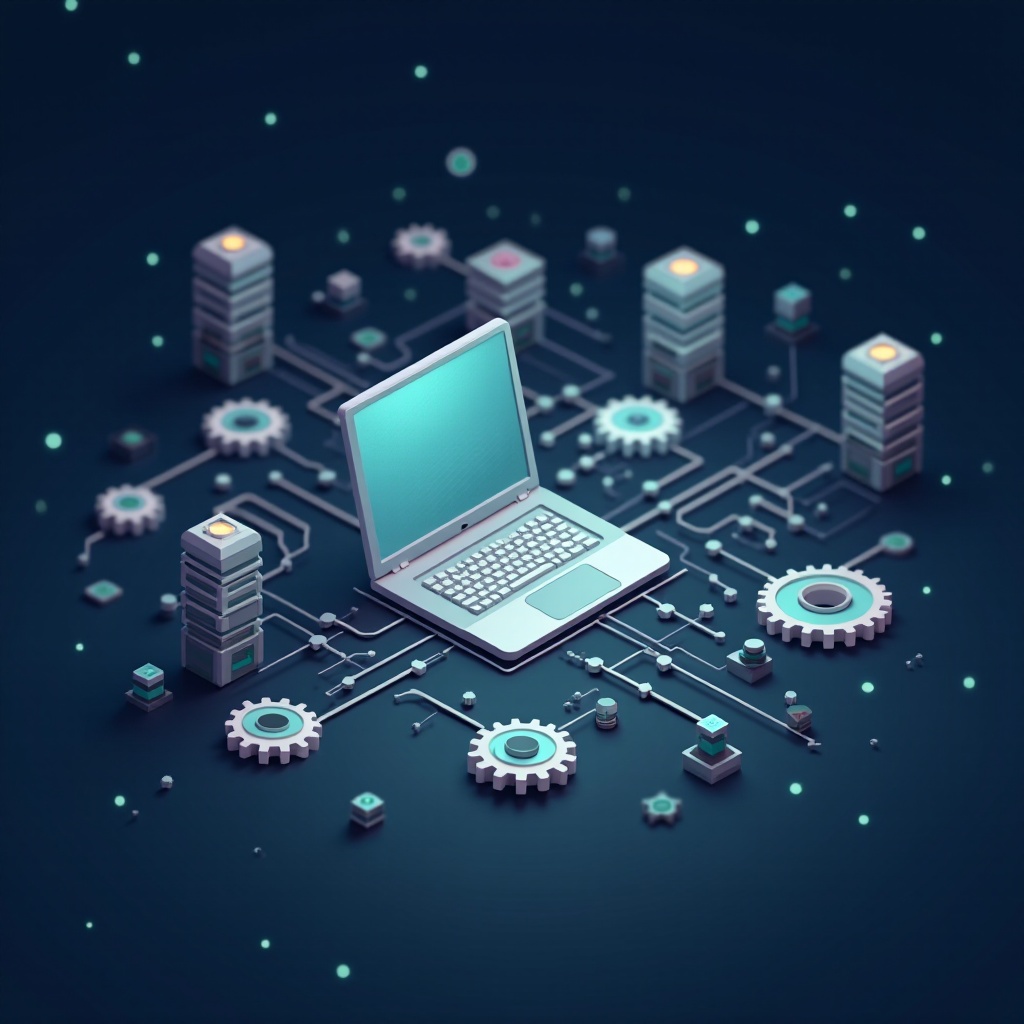Introduction
Computers are integral to executing tasks efficiently, largely due to the role of operating systems (OS). These systems manage hardware, software, and resources, ensuring everything runs smoothly. But what if a computer didn’t have an OS – could it still operate? This intriguing question leads us to explore the purpose of operating systems, the feasibility of OS-free computers, and scenarios where such setups might make sense.

What is an Operating System?
An operating system serves as the bridge between user inputs and computer hardware functionality. It coordinates hardware activities and simplifies user interactions with the device. Popular operating systems like Windows, macOS, and Linux offer user-friendly interfaces and manage essential tasks like running applications and handling files.
Over time, the concept of operating systems has evolved substantially. Initially, early computers operated without an OS, relying on basic processes like punch cards to execute instructions. This method was cumbersome, giving rise to the need for operating systems that could streamline and automate these tasks for greater efficiency.

Computers Without an Operating System: Is it Possible?
To understand if a computer can function without an OS, we turn to the concept of bare metal computing. This approach involves running software directly on hardware, bypassing traditional operating systems. It’s prevalent in embedded systems, where minimalistic software efficiently performs highly specialized tasks.
There are viable instances of OS-free computing in devices such as ATMs, microwaves, and industrial machinery. These systems utilize dedicated software to complete specific functions without the need for a comprehensive operating system. While limited in their capabilities, they are designed precisely for their intended purposes.
The Role and Importance of Operating Systems
Operating systems are vital for managing system resources, which includes memory allocation, processing tasks, and coordinating input/output operations. They are the backbone of personal computing devices and smartphones, enabling users to operate their devices through an intuitive graphical interface.
Moreover, operating systems ensure compatibility by running a myriad of software programs tailored for specific OS environments. They facilitate communication between hardware and software components, making it otherwise challenging for users without extensive technical knowledge to perform even routine tasks.

Modern Scenarios of OS-Free Operations
Despite the prevalence of operating systems, there are cases where they are unnecessary. Embedded systems and microcontrollers found in everyday appliances operate with bespoke software crafted for specific operations. For instance, thermostats adjust conditions based on built-in programming and sensor feedback.
Specialty hardware, often found in scientific instruments and industrial control systems, may also function without operating systems. These devices are designed for very specific tasks and do not require the flexibility offered by a general-purpose OS. Their software communicates directly with hardware intended to execute narrowly defined operations without multitasking capabilities.
Challenges and Limitations of Operating Without an OS
Despite possible scenarios of operating without an OS, significant challenges must be considered. Usability is a major concern as users are deprived of the graphical interfaces that make operating systems user-friendly. Furthermore, the absence of multitasking capabilities limits the simultaneous running of different tasks, significantly reducing operational efficiency.
Security is another critical consideration. Operating systems incorporate various security protocols to protect against threats. In the absence of such protective measures, computers operating without an OS are more vulnerable to security risks. As a result, OS-free environments are only appropriate for specific, isolated uses where these constraints can be effectively managed.
Conclusion
Although it’s technically feasible for computers to operate without an operating system, the user experience is severely compromised without them. Operating systems are crucial for efficient resource management, compatibility, and security. They have become indispensable components of personal computing. However, certain embedded systems and specialized devices reveal that in controlled settings, functioning without an OS is both possible and beneficial for particular tasks.
Frequently Asked Questions
What types of devices can operate without an OS?
OS-free devices include ATMs, microwaves, and industrial machines, using dedicated software to perform specific tasks efficiently.
Can regular software programs run on a computer without an OS?
Regular software typically needs an OS to operate, as it relies on system services for managing resources and interactions.
How has the role of operating systems changed over time?
Operating systems have evolved from simple task managers to complex platforms handling multitasking, security, and hardware communication.
